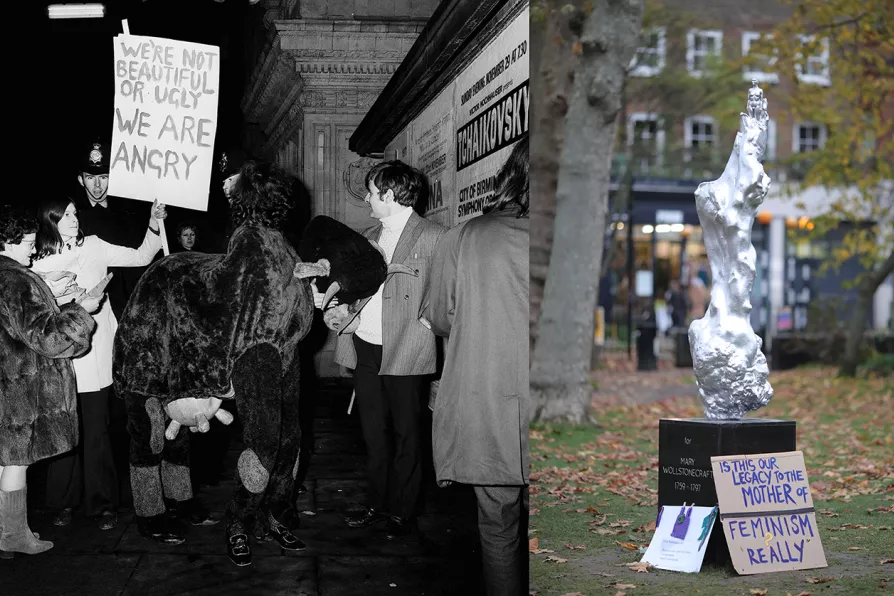As tens of thousands return to the streets for the first national Palestine march of 2026, this movement refuses to be sidelined or silenced, says PETER LEARY

 Feminists protest at the Miss World contest in 1970 and (right) Maggi Hambling’s latest creation in north London
Feminists protest at the Miss World contest in 1970 and (right) Maggi Hambling’s latest creation in north London
FIFTY years ago a raucous band of women disrupted the finals of the Miss World competition, describing it as a cattle market.
They sprayed the bouncers with ink, showered the stage with flour bombs and broadcast a fundamental feminist message across the globe, shouting: “We’re not beautiful, we’re not ugly, we’re angry!”
Last week, just before the half-centenary of that consciousness-raising protest, a statue to commemorate Mary Wollstonecraft, the visionary Enlightenment thinker, was inaugurated in Newington Green in north London.

JOHN CALLOW examines what went wrong for the Czech communist party in the recent parliamentary elections, where it failed to meet the threshold to return deputies and some now talk of the party abandoning its commitment to socialism

Still the only black man to win the US Open tennis title, a statue of the legendary champion, Arthur Ashe, is now the only one remaining on Monument Avenue in his Richmond, Virginia hometown, where confederate leaders of the Civil War were also once displayed, writes LINDA PENTZ GUNTER

LYNNE WALSH tells the story of the extraordinary race against time to ensure London’s memorial to the International Brigades got built – as activists gather next week to celebrate the monument’s 40th anniversary











